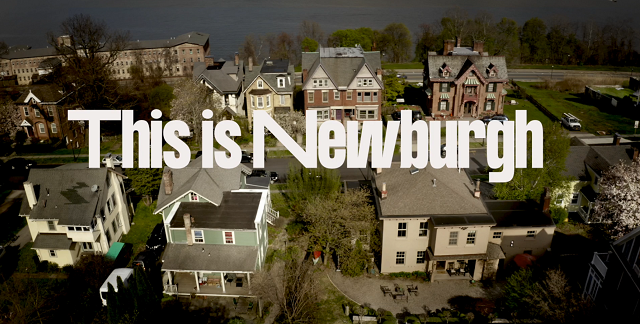
The weekly link roundup is a collection of links related to Newburgh, revitalization, urban planning and anything else that might inspire change or create dialogue. Photo by Steven Rosas.
How do Neighborhoods Become Strong? [ST]
Why Cities Need Independent Businesses – Video [IB]
How Smaller Cities Can Attract (and Keep) Millennials [G]
Two Perspectives on Small Town Southern Life – Podcast [SE]
Philly Business Corridor Seeks Right Mix of Growth, Preservation [NC]
Add your own photos depicting city life to the Newburgh Restoration flickr pool to be used on the blog, or email me. **Flickr users please do not forget to remove disabling of downloading of pictures. Otherwise, I can’t use them** Please do not take photos for your own use without consulting the photographer.







This “strong” city to millennial nexus is circular thinking. People have always conjugated to where opportunity is. Opportunity will draw the “talented” who, in turn, will forge their own way. The closer to the core, you’ll be paying more…not hard to understand (these “new urban” concept articles seem to have have conceded to the fact that commuting is a necessity). Smaller cities and towns, by and large, exist on the peripheral to a larger economic opportunity. They were intended to be self sustainable to the point of supporting this “dynamic”. “Quality of place”, “diversity” and “cultural amenities” are self imposed by its community, not mandated by policy makers that are blind to moral hazards. Bankrolling them over time by a decreasingly prosperous city because it has become disconnected from the larger economy and profits a few grazers will worsen its situation. Cities and “neighborhoods become strong” when they capitalize on their comparative advantages as perceived by the whole. I find it interesting that contemporary think tanks are citing urban “essentials” of prosperity like a new found religion. These modern disciples of policy seem to be puppeted down the same path as their predecessors in defining “the Cities’ ” role in a prosperous economy… ‘to engage and encourage’ the peeps. Certain cities, towns and states are scrambling to “attract (and keep) millennials”, aka tax paying customers, because the demographic’s shift have left them exposed. It’s what the whole tax reform is about…”essentials” vs “amenities”. Unless it is going to become a retirement community, Newburgh may want to capitalize on its relatively “affordable housing” and “ease of commute” , aka essentials, to young, “talented” paying customers (the “cultural amenities” will manifest on their own, as is already evident, no need to force feed it). Alternatively, it can go along as is. And it may… a”flow through” provision in the tax reform enables RE llc’s to be taxed at a lower rate. Strange that hasn’t gotten any mention by the reform opponents…not. Any wayzzzz…some say it would be nice if the city can afford certain expanded public services. I say it would be great if the city didn’t need them in the first place. Similarly, what’s up with the push by some local enviro advocates to relinquish control of our water? “Quality of life planning” or is it increased centralization? Watch your step…